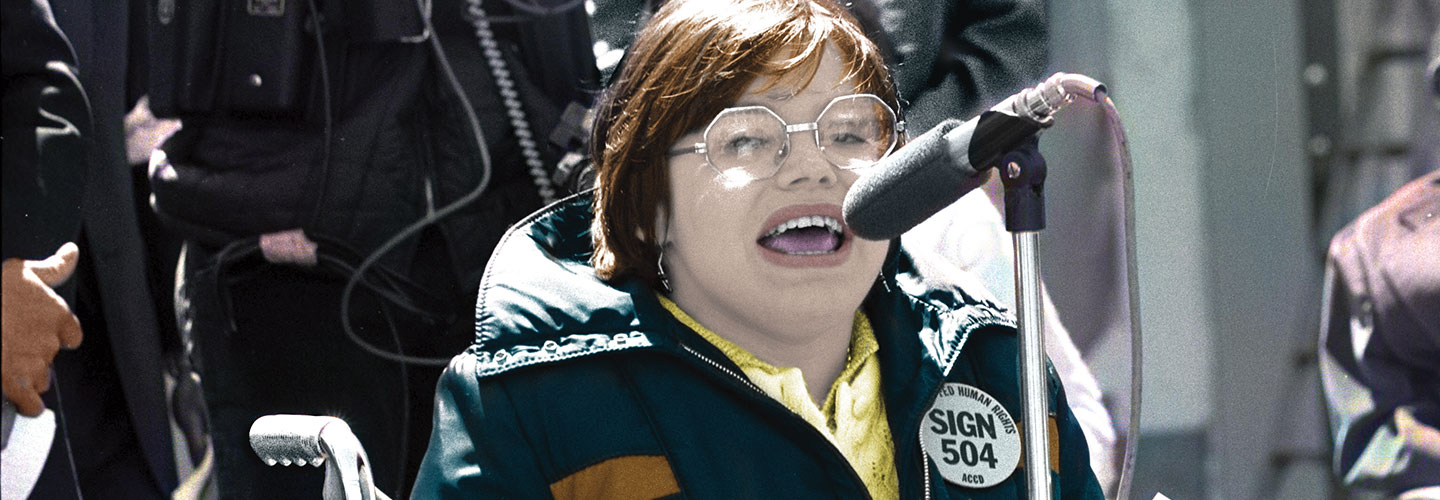Judy Heumann knows what it’s like to grow up in a world that wasn’t built for her. In 1949, when she was 18 months old, she contracted a disease called polio, which left her paralyzed.
When Heumann’s mom tried to enroll her in kindergarten in New York City, the principal wouldn’t let her in, calling her wheelchair a “fire hazard.” Three years later, Heumann was finally allowed to attend school. But she and other students with disabilities were forced to learn in the basement—separate from other kids.
As Heumann got older, it was difficult for her to go to the movies with her friends because theaters lacked wheelchair ramps. She often had to be carried up flights of stairs.
But Heumann never felt ashamed of who she was, and why should she? She knew it wasn’t people with disabilities who needed to change—it was the world around them.
“People continually think that those of us with disabilities would prefer not to have our disabilities,” Heumann, now 73, says. “It’s important for people to see that disability is a normal part of life.”
Heumann spent decades as an activist in the disability rights movement, leading sit-ins and other protests to demand equality for people who have disabilities.
Judy Heumann knows what it is like to grow up in a world that was not built for her. In 1949, she came down with a disease called polio. It left her paralyzed. She was 18 months old.
Heumann’s mom tried to enroll her in kindergarten in New York City. But the principal would not let her in, calling her wheelchair a “fire hazard.” Three years later, Heumann was finally allowed to attend school. But she and other students with disabilities were forced to learn in the basement—separate from other kids.
As Heumann got older, it was hard for her to go to the movies with her friends. Theaters lacked wheelchair ramps. She often had to be carried up flights of stairs.
But Heumann never felt ashamed of who she was. Why should she? She knew it was not people with disabilities who needed to change. It was the world around them.
“People continually think that those of us with disabilities would prefer not to have our disabilities,” says Heumann. She is now 73. “It’s important for people to see that disability is a normal part of life.”
Heumann spent decades as an activist in the disability rights movement. She led sit-ins and other protests to demand equality for people with disabilities.

